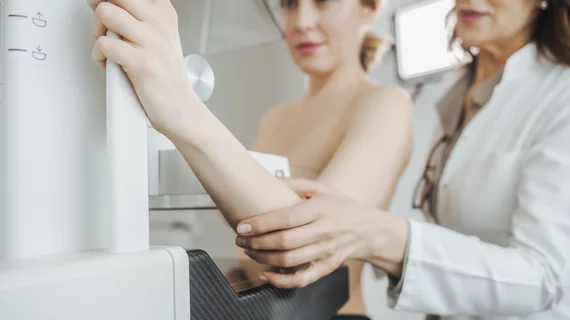Misinformation on mammography thyroid shielding goes viral, presenting opportunity for radiologist clarification
Debunked claims about the risk of getting thyroid cancer from mammography have gone viral, with tens of thousands of shares on Instagram and Facebook in recent months. This could lead to more patients asking for thyroid guards during imaging, presenting an opportunity for radiologists to clear up any confusion.
The original social media postings cited Dr. Oz for these claims and urged women to ask their caregiver for a thyroid guard when undergoing breast imaging. However, this contradicts common medical advice that such shielding is unnecessary and may even impair scan quality, journalistic fact-checking website AFP reported Tuesday, Feb. 18.
“The radiation to the thyroid is negligible during a mammogram,” rendering these guards completely “unnecessary,” Paula Gordon, MD, a breast radiologist and professor with the University of British Columbia, Vancouver, told the website.
Claims about the importance of thyroid guards date all the way back to a 2011 episode of Dr. Mehmet Oz’s TV program. It’s unclear why they’ve resurfaced again nine years later. The cardiovascular surgeon and TV personality did not respond to AFP’s request for an interview. But Oz clarified to his nearly 6 million Facebook followers on Feb. 7 that “a thyroid guard isn’t mandatory during a mammogram.”
There was a similar public furor at the time of the episode’s original airing back in 2011. It grew so severe that the American College of Radiology and the Society of Breast Imaging eventually issued a joint statement at the time to quell fears about getting thyroid cancer from imaging. Tuesday’s report also noted that wearing lead thyroid shields during dental exams may be beneficial.
Read more about the topic from AFP:

